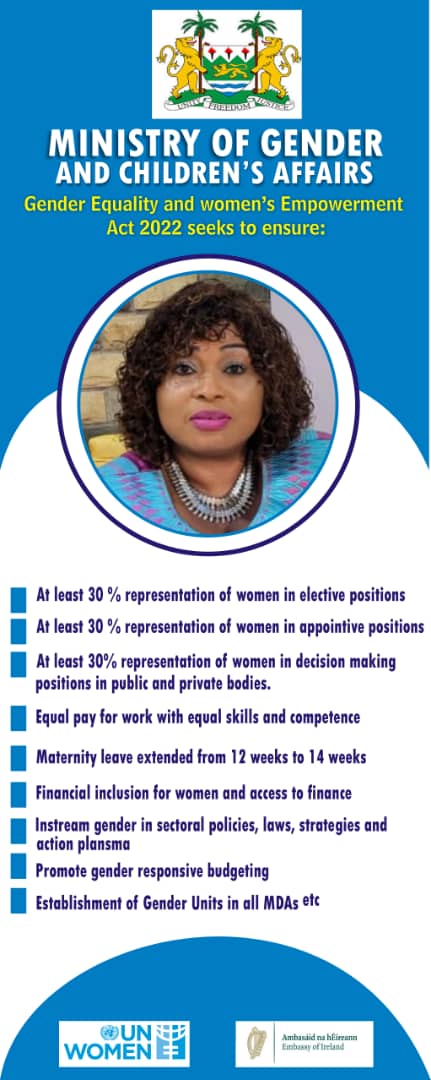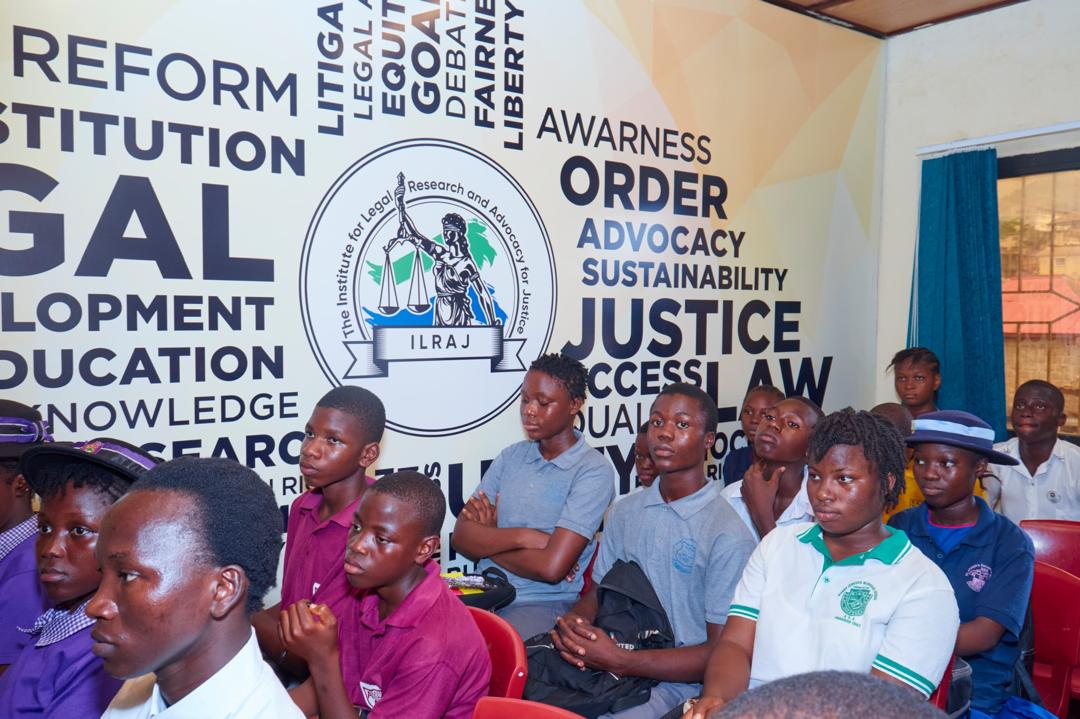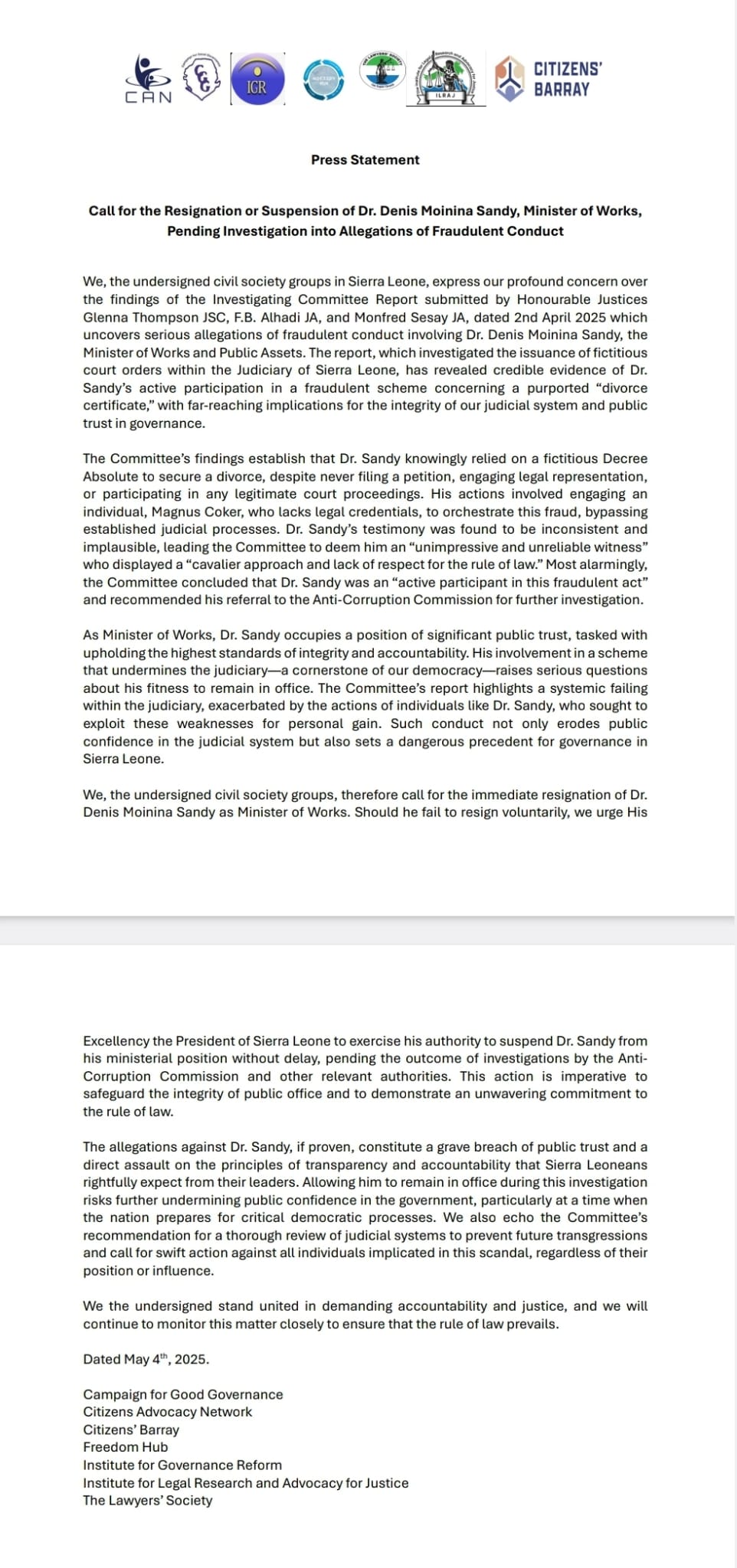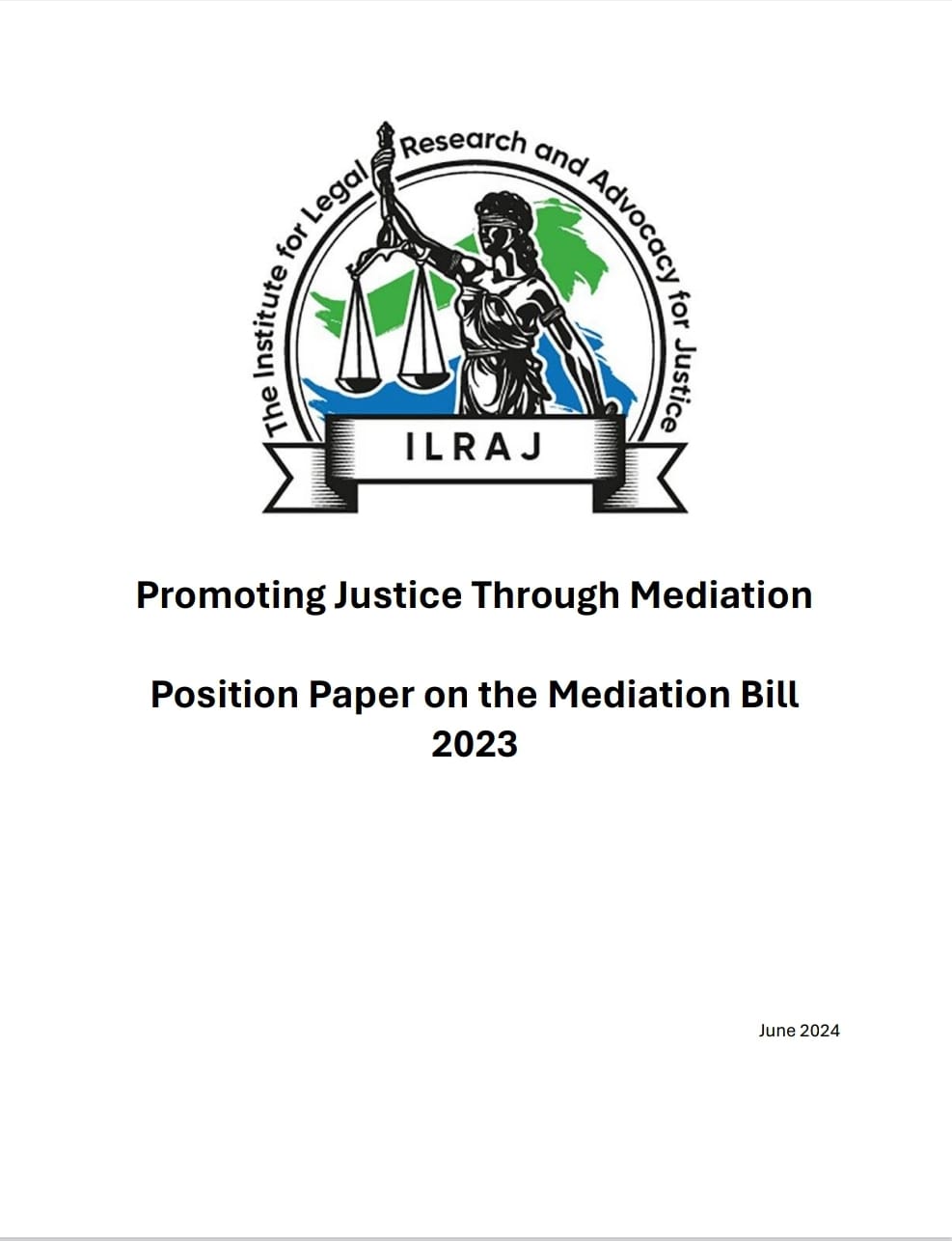ILRAJ is disappointed with the final product of the Gender Equality and Women’s Empowerment Act (GEWE), Act No. 23 of 2022. GEWE promised a great deal but delivered very little to achieve the objectives piloted by the Government. In addition to being poorly drafted, there has been a lot of misinformation and contradicting statements regarding the provisions contained in the Act.
Contrary to popular belief, the Act does not mandate 30 percent representation in elective and appointive positions. Section 3 (1) of the Act states that ‘In making appointments to cabinet and other government positions, the President may take due consideration of the possibility of appointing women to at least 30%.’ At least 30% of what the Act does not say. Assuming it is the cabinet and other government positions, there is no guarantee that this will be done. The contradiction in the section is astonishing – the President may take due consideration of the possibility of appointing women. The President may consider it but is not bound to do so.
In section 3(2), which deals with appointments to public offices not made by the President, the provisions of the law are much more substantial. It states that ‘at least 30% shall be women.’ This, of course, begs the question – how many appointments within the public service are not made by the President? Perhaps some of the lower ones. Especially since the decision of the Supreme Court in the case of Alhaji Sam Sumana v Attorney-General & Anor (SC 4 of 2015) [2015] SLSC 1203 (09 September 2015), Supreme Executive Authority has been used to ensure that the President makes all appointments to top positions in the public service. Consequently, women will be left with 30% of the jobs in the lower rungs of the public service. In contrast, the top positions will be left to the whims and caprices of whoever is the President for consideration appointment.
Contrary to what was reported in the media, this Act does not provide for 30% of women’s representation in Parliament. Section 2 unnecessarily repeats what is in the Public Elections Act 2022 and says there shall be public elections. It then leaves the issues of elections hanging and moves on to something else. It is not covered under the provisions of section 3, the only section in Part II of the Act.
Section 4 (1) imposes a mandatory requirement on the public and private sectors to have at least 30% of women in employment. Section 4(2) states that out of the 30% employed, 30% must be in ‘decision-making positions at all levels within the organization.’ It doesn’t say that 30% of women should be in decision-making positions, as reported. It is 30% of the 30% employed. So, if an organization has 100 staff, 30 must be women. 30% of those 30 women, namely 9, must be in decision-making positions. In other words, only 9% of women will be in decision-making positions.
Section 5 of the Act states that an ’employer shall ensure remuneration for persons of equal skills, competence, expertise and knowledge without discrimination of any kind.’ Equal pay for equal and skills and competence is too little too late. The New Education Policy for Sierra Leone states that 69.3% of the male population is illiterate, while 80% of the female population is illiterate. There is abundant evidence that, based on years of discrimination, most women are under-skilled and underqualified. In a country where in some parts, parents prefer to send boys instead of girls to school, there was a need for some positive discrimination – affirmative action to ensure that the balance is redressed over the years. Section 27 of the Constitution of Sierra Leone provides for protection from discrimination, including based on sex. This section just entrenches the current bias. In most cases, employers will find it easy to pay men more based on skill, expertise, competence and knowledge.
The provisions on equal training and scholarships, as well as the increase from 12 to 14 weeks of maternity leave, are excellent. Likewise, the section dealing with equal access and the right to credit, financial services, transactions, and products is great in principle. But it has little teeth, though, as all it states is that a government financial institution, including the Bank of Sierra Leone and the Ministry of Finance, shall prescribe procedures and processes for improving access to finance for women. Only time will tell what that means and whether it will be done.
Additionally, the clause falls short of promoting women’s economic empowerment. Other provisions are required, such as those addressing women’s access to land and land rights, developing skills, particularly entrepreneurial skills and capacity building for women, making it easier for women to find employment opportunities and access to markets.
There are numerous other instances of discrimination against women in our society that the Act does not cover. Even now, some landlords discriminate against women and won’t rent property to them. The legal system has separate rules for sureties who are women. To make up for decades of prejudice and create the capability required to fill the numerous jobs for women, affirmative action must be used when awarding scholarships, awards, and bursaries to students. The Government is not required to allot sufficient funds for women’s empowerment. The removal of discrimination based on marital status, access to healthcare, and reproductive health are other areas that should have been covered.
In a letter to Parliament, we urged them to consider these and other issues. Sadly, they did not, and we now have, in our humble view, a mediocre legislation that will not transform the lives of women as was intended. Successive governments have failed to match their laudable rhetoric toward women’s empowerment with concrete actions. We had hoped that this law would put an end to this. Sadly, this fell short of all expectations.
February 9th, 2023.
The draft GEWE bill submitted to Parliament https://www.ilraj.org/wp-content/uploads/2023/02/ILRAJs-Draft-Gender-Bill-submitted-to-Parliament.pdf
Read the new Gender Equality and Women’s Empowerment Act 2022 https://www.ilraj.org/wp-content/uploads/2023/02/GENDER-ACT-2022-6-1.pdf







